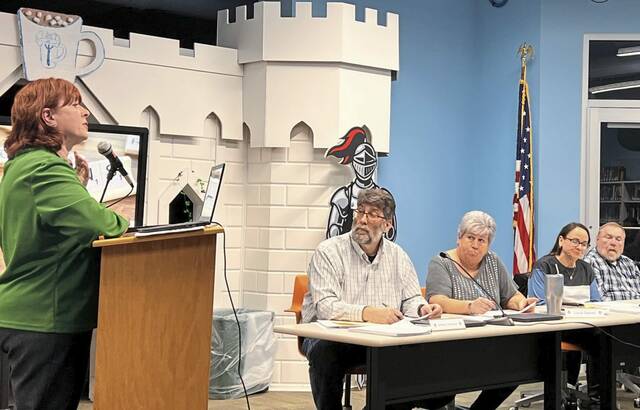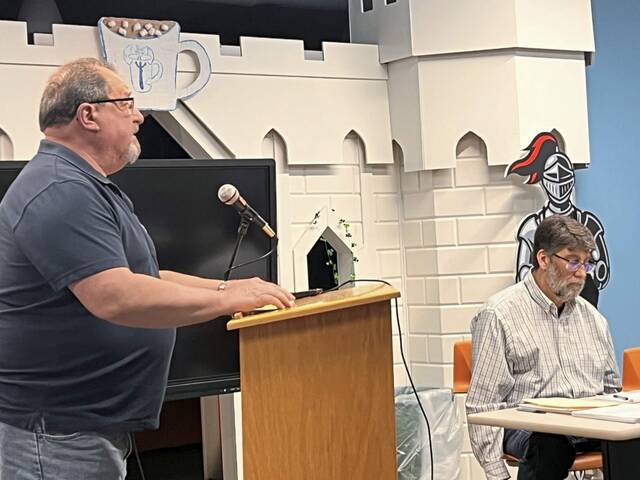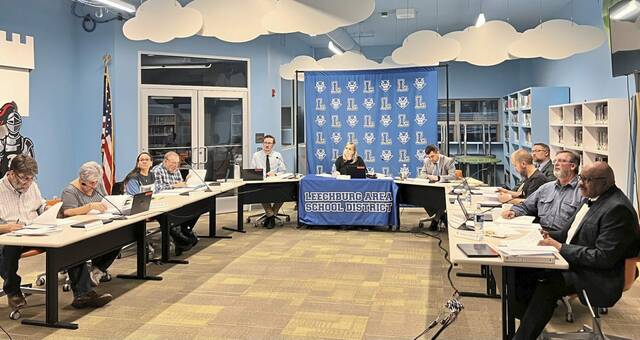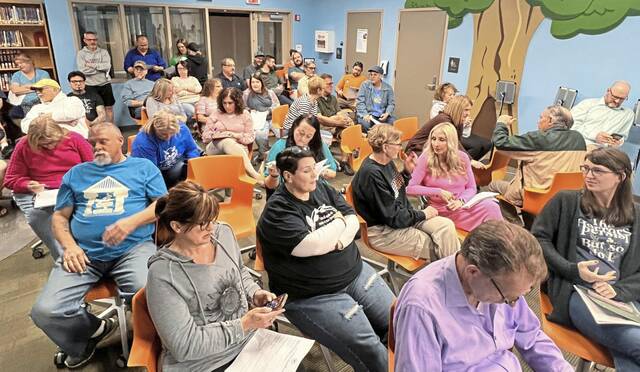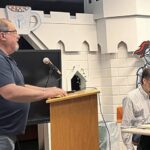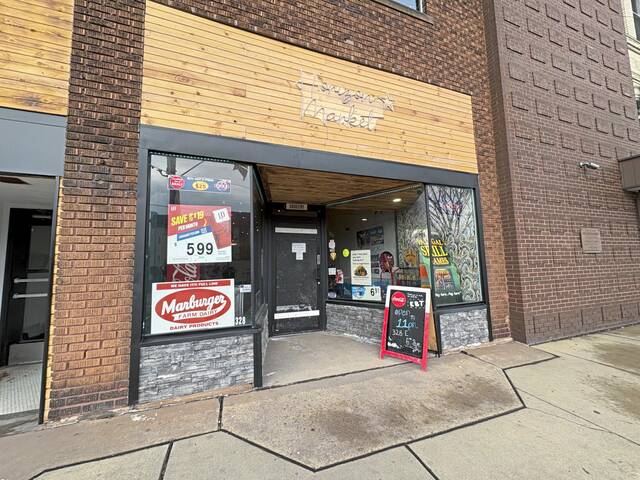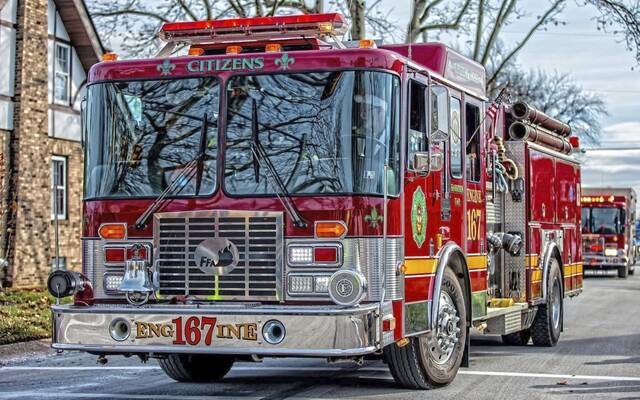Property owners in the Westmoreland County portion of Leechburg Area School District are demanding a new tax structure that doesn’t dip as deeply into their pockets as the current one does.
“You’re picking the pockets of the 1,300 residents of West Leechburg,” Jake Heasley told Leechburg Area School Board members last week.
Heasley, a West Leechburg homeowner for 20 years, said his real estate tax bill for the current school year was more than $3,000. The school board is grappling with a $1.2 million deficit for the upcoming fiscal year.
Leechburg Area, a district with fewer than 700 students, includes West Leechburg in Westmoreland County and Armstrong County’s Leechburg and Gilpin.
The tax rate in West Leechburg is 143.65 mills, more than twice the rate of 70.54 mills in Leechburg and Gilpin.
The difference in tax rates is common for school districts such as Leechburg Area that cross county lines. Because properties are assessed at different rates in different counties, such districts have to use a formula supplied by the State Tax Equalization Board that tries to equalize the tax burden for all property owners.
It doesn’t always work out that way.
When Armstrong County last reassessed its properties in 1997, most assessed values increased. The assessed value of a property is the dollar value to which millage rates are applied, creating the tax bill for owners.
But Westmoreland County has not reassessed properties since 1972, meaning average assessments there are lower. Because of that, the school district has to tax property owners there at a higher millage rate to ensure they are paying roughly similar tax bills.
West Leechburg residents say the state’s equalization formula is working against them.
The median assessed property value in West Leechburg is about $18,000. In Gilpin and Leechburg, the median assessed value is about $33,000.
Under current tax rates, the owner of a home at West Leechburg’s median assessed value owes about $2,600 in school taxes, while the owner of a median-valued home in the Armstrong County portion of the district pays about $2,300.
‘A forgotten player’
Jimmy Feudale, 63, a retired teacher and West Leechburg resident, told school board members last week that his community is tired of high school taxes.
“Why is West Leechburg being treated unfairly and being burdened with a higher tax bill?” Feudale asked.
West Leechburg resident Gene Klanica pointed out that West Leechburg has 650 homes and is a bedroom community that lacks a business district.
“A lot of us are looking at a lot of money. People are struggling to put food on the table for their families. We can’t afford to have a tax increase this year,” Klanica said.
Leechburg Area Business Manager Teresa Edinger said the district’s preliminary $16.4 million budget for 2024-25 includes projected revenues of $15.2 million, leaving a $1.2 million shortfall that has to be plugged.
The district is weighing five tax options that could change tax bills — for better or worse, depending on where the taxpayer lives.
All of the scenarios would see tax rates increase in West Leechburg while decreasing tax rates in the district’s Armstrong County communities — a situation that enrages West Leechburg residents, who also saw tax increases from their borough and Westmoreland County this year.
West Leechburg Councilwoman Christina Hosler pointed out no one from West Leechburg serves on the school board.
“In a way, we’ve been a forgotten player, and we have been taxed as such,” Hosler said. “This problem is plaguing our relatives, and they can’t be plagued anymore.”
“People with young families aren’t lining up to live here,” Heasley added. “What are we paying for — and is it worth it? The school board continuously gives the middle finger to taxpayers in West Leechburg.”
Although the first tax scenario under consideration does raise West Leechburg’s millage rate and lower it in the Armstrong County portion of the district, district officials say that is due to the state tax equalization ratio from the state and does not reflect any millage added by the district.
The ratio is a formula created by the state that districts must apply to tax rates when the district crosses county lines. The ratio changes each year depending on the total assessed values in communities.
The State Tax Equalization Board (STEB) did not respond to multiple requests for comment.
District leaders head to Harrisburg
School board President Ashley Coudriet told residents at last week’s meeting that the board is looking into all options.
She said some administrative leaders and board members are going to Harrisburg to learn about state tax equalization and the district’s options to appeal the ratio it was assigned for the next school year.
Acting Superintendent David Keibler, Coudriet and board member Tom Maxin planned to drive to Harrisburg on Wednesday to meet with STEB officials to inquire about tax relief options.
“The purpose of our trip is to figure out what needs to be done to appeal to STEB and we’re asking the state to leave our millage exact for the current school year,” Keibler said. “I want them to see we’re no longer taking this lightly. We need answers. This is killing our community and I feel like I owe it to the community.”
Keibler is working with state Sen. Joe Pittman, R-Indiana, in an effort to seek his support on the issue.
Additionally, Keibler said state aid may be available and the board is looking at areas to save in the preliminary budget without impacting programs, such as the consolidation of select bus routes to save money.
“I will continue to look at other options, and we are cutting, looking and seeing where there are options, and we’re moving forward with this,” Keibler said. “There’s 88 schools getting impacted, like Freeport Area School District, with (state tax equalization formulas between counties).”
Interim Solicitor Gary Matta stressed that no decisions have been made.
“It’s very early in the budget process. Nothing is ruled out,” Matta said.
The board must vote to approve the preliminary budget in May and vote on the final budget in June.
To view the online 2024-25 preliminary budget, click here.


